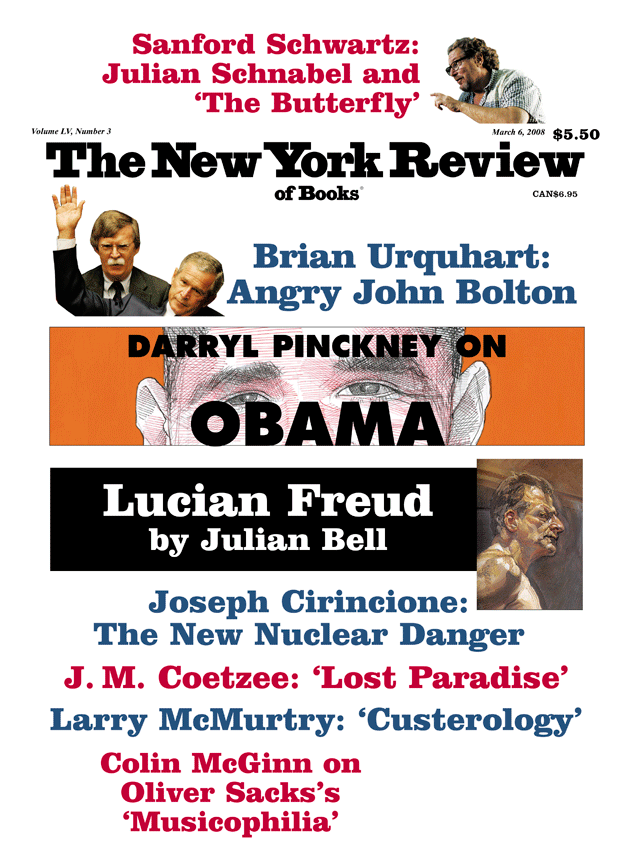In response to:
The New Montenegro: The State That Was Not a State from the December 6, 2007 issue
To the Editors:
In his otherwise erudite review of Elizabeth Roberts’s history of Montenegro [NYR, December 6, 2007], Noel Malcolm’s treatment of Montenegrin leader Milo Djukanovic struck us as conspicuously uncritical.
Djukanovic did not “emerge” on the Montenegrin political scene in the late 1990s, as Malcolm surely knows. Rather, a Communist careerist since his teenage days, Djukanovic rose to power in Montenegro in the late 1980s through the personal support of Serbian leader Slobodan Milosevic and only much later broke with his one-time mentor.
Djukanovic was part of a Belgrade-loyal clique that, among other ignominies, bore direct responsibility for the 1991 bombardment of the unarmed Croatian tourist city of Dubrovnik. Shortly after Djukanovic became prime minister, Yugoslav army units in Montenegro attacked southern Croatia from the land and the sea. The Montenegrin leadership—aided enthusiastically by the state-controlled media—mobilized reservists with wholly unsubstantiated claims of a pending Croatian march on Montenegro.
The Montenegrins’ “preemptive” invasion was cynically dubbed the “war for peace” (rat za mir) and during it Montenegrin forces sacked dozens of villages in southernmost Dalmatia and shelled the historic port of Dubrovnik, causing millions of euros in damage and hundreds of civilian deaths. Captured Croatian “combatants”—mostly civilians—were rounded up in Montenegrin camps and abused. As Roberts demonstrates in her book, Montenegro remained allied with Serbia through the duration of the wars in Croatia and Bosnia—a period during which Djukanovic solidified his position in power. Another dark spot, one Roberts doesn’t mention, is the 1992 deportation of about one hundred Muslim men, war refugees from Bosnia who had fled to Montenegro, to Serbian detention camps. Only a handful survived.
Eventually, well after the war in Bosnia ended, Djukanovic turned on his former political sponsor in Belgrade and began driving Montenegro away from Serbia, toward independence and the West. Only in 2000 did the Montenegrin administration express regret for its part in the 1991 atrocities in Croatia, claiming it had been misled.
Despite his formal retreat from politics, Djukanovic—according to Roberts now “father of the nation”—remains a vitally important political figure in the country. It is thus all the more surprising that Malcolm neglects to mention his past. Djukanovic, once he jumped Milosevic’s ship, became a genuine force for change. But now he is an obstacle (again) for his country’s political development. The revamped Communist Party has been in power for sixteen years, with much of the same personnel as in the early 1990s. It is inevitable with Djukanovic so close behind the scenes that patronage networks still underpin the state administration and the stigma of corruption hangs over the political elite. Montenegro would benefit from nothing more than a forthright break with this past.
Paul Hockenos Jenni Winterhagen
Berlin, Germany
Noel Malcolm replies:
When I wrote that Djukanovic “emerged,” I meant that he emerged as a national leader; his earlier role, which certainly deserves serious criticism, was secondary to that of Bulatovic. It is true that I did not discuss his earlier career. I was writing a review of a general history of Montenegro, not an essay on the recent political history.
This Issue
March 6, 2008


